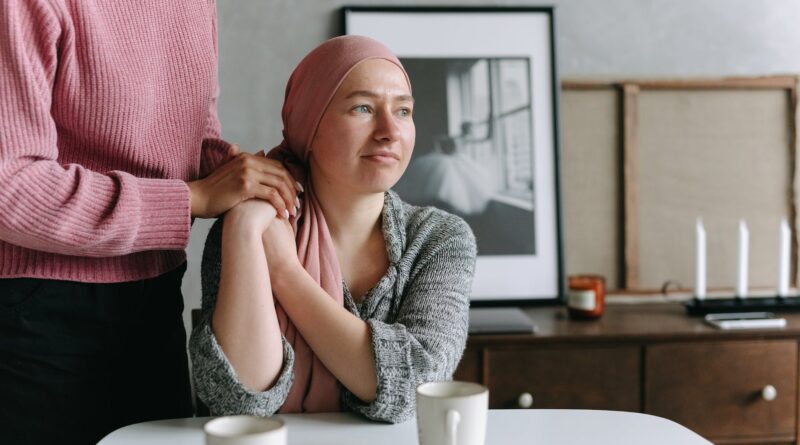Exploring Cannabis and Cancer: A Closer Look at Its Potential as a Complementary Therapy
—
The past few years have seen a significant increase in research and public interest regarding the potential applications of cannabis in healthcare, particularly in relation to cancer treatment. While it’s crucial to note that cannabis is not a cure for cancer, mounting evidence suggests its potential as a complementary therapy, offering possible relief from symptoms and side-effects of the disease and its traditional treatments.
Among the various compounds found in the cannabis plant, THC (tetrahydrocannabinol) and CBD (cannabidiol), are the most recognized for their potential medicinal properties. These active compounds, known as cannabinoids, interact with specific receptors in our bodies to create various effects, many of which could be beneficial in a cancer context.
One of the most well-established uses of cannabis in cancer care is as a means of alleviating pain. As a potent analgesic, medical cannabis can manage inflammatory and neuropathic pain more effectively than traditional opioids – with fewer side effects – providing much-needed pain relief for cancer patients.
Another significant use of cannabis in cancer treatment involves managing chemotherapy side-effects. The intense impact of chemotherapy on the body often results in nausea, loss of appetite, and vomiting. Remarkably, the anti-emetic properties of cannabis can help diminish these nauseating sensations. Moreover, THC, the psychoactive compound in cannabis, has consistently shown to improve appetite in patients undergoing chemotherapy, hence aiding in the appetite stimulation.
Equally exciting is the ongoing exploration into the potential anti-tumor effects of cannabis. Some preclinical animal studies and cell culture experiments suggest that cannabinoids could inhibit tumor growth by causing cell death, blocking cell growth, and inhibiting tumor angiogenesis invasion and metastasis. However, it is important to underline that this research is preliminary and cancer research with humans is necessary to confirm initial findings.
Cannabidiol (CBD), with its non-psychoactive profile and robust anti-inflammatory properties, has also found its way to the spotlight among cancer discussions. Research has shown that CBD can soothe inflammation and protect nerve cells from degeneration, potentially reducing chemotherapy’s neuropathic pain. In addition, CBD has shown promise in combating insomnia and anxiety, often associated with the psychological burden of cancer.
While the potential of cannabis as a complementary therapy in cancer treatment is exciting, it’s necessary to recognize that it is not a cure-all solution. Cannabis might not be suitable or beneficial for all patients. The dosage, strains, and delivery methods are consideration factors and should be carefully discussed with healthcare professionals, keeping in mind the potential side effects and interactions.
Furthermore, the legal status of cannabis, both recreational and medicinal, varies globally, further complicating its incorporation into mainstream cancer treatment. Legislation and accessibility challenges may impose significant barriers to patients seeking cannabis as a part of their treatment plans.
Current findings on the potential role of cannabis in cancer treatment offer hope for better symptom management and improved patient quality of life. As cancer treatment continues to evolve, cannabis could soon become an integral part of the vast toolkit for managing the disease. However, this potential can only be realized through more extensive, meticulous, and rigorous research.
The role of cannabis in cancer treatment exemplifies the broader need for an open dialogue between scientists, clinicians, policy makers, and patients. Whether for pain relief, appetite stimulation, or potentially more direct anti-cancer effects, the potential benefits of cannabis demand our attention and exploration, as we strive towards a future of more personalized and effective cancer care.
